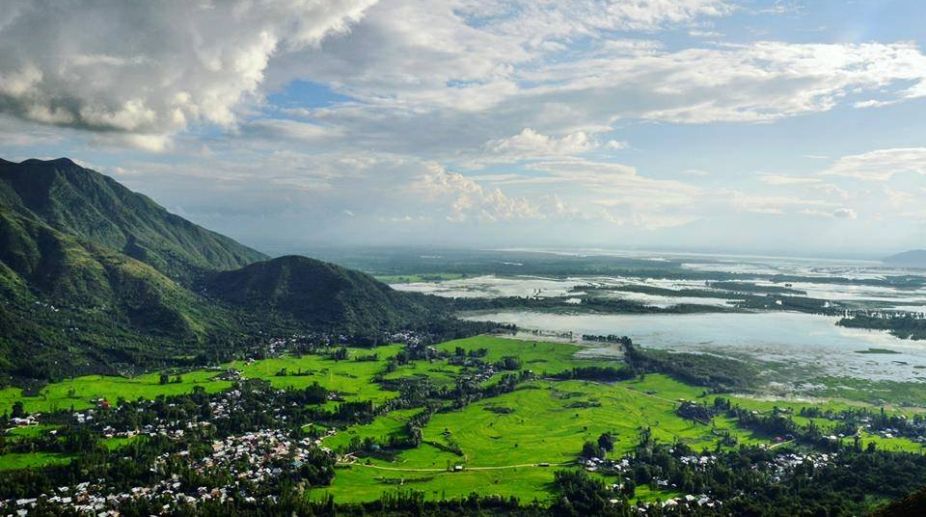High-speed trial run of train successfully conducted on Katra-Banihal section
It is expected that Vande Bharat might start running between New Delhi and Srinagar by 26 January.

Photo Source: Twitter
Bilal Ahmad Dar, 18, is ready to start his daily journey into the Wular Lake, said to be Asia’s largest fresh-water lake, early in the morning on a bitterly cold December day.
For the last four years, this teenaged breadwinner of the family has been collecting plastic bottles, metal scrap, empty tetra packs and other waste left behind by locals and tourists, who come to visit the lake and end up littering it.
Advertisement
Bilal does not go to school like other boys of his age. He had to hang up his school bag when his father, Muhammad Ramzan, died five years ago leaving behind his mother, Mugli, elder sister Kulsuma, younger sister Rakshana and Bilal. Fate forced Bilal to make a living for his poor family by collecting refuse and trash from Wular Lake and selling it to scrap buyers.
Advertisement
In the process, this teenager has been doing what the government failed to do — cleaning the famous lake, the community’s lifeline — which was his passion even as a kid.
“Wular Lake is our life. I have always been pained to see people leaving behind metallic, plastic and other waste while they come here for sightseeing. Even when my father was alive, I used to go to the bank of the lake and try to remove unhealthy waste left there. When my father died, I had no option but to give up my studies and start earning for myself and my family.
“I decided to make a living by chasing my passion to preserve the lake on whose banks I was born and brought up,” Bilal told IANS.
The small, apparently unnoticed effort was lauded by none other than the country’s Prime Minister Narendra Modi, who made a special mention of Bilal and his effort in his “Mann Ki Baat” address to the nation.
Bilal said, “I did not know about the development till officials and media people came to our village. It is really encouraging that the Prime Minister made a mention of my work.
“This has created a huge difference in my life. I would earn around a hundred rupees daily by selling the scrap collected from the lake, but that income depended on good weather and other factors which are necessary before one rows his boat into the lake.”
Prompted by Modi’s mention, the Srinagar Municipal Corporation designated Bilal as its brand ambassador to attract attention towards the deteriorating condition of the Dal Lake in Srinagar city and other water bodies here.
The municipality has fixed a monthly honorarium of Rs 8,000 for Bilal to continue his work.
“The first ‘tankha’ (salary) was credited to my account last month. I am now able to live a better life and pursue my work more effectively. Other boys and even elderly people have been encouraged to do their bit regarding the cleaning of the lake.
“My first request to everybody living around or coming to visit the lake is not to leave behind waste either on the lake’s banks or in it.
“After one takes a pledge not to pollute the water body, the second thing is to help remove the waste that is already there,” he said.
He says it is not possible to clear everything through an individual effort.
“Carcasses of animals can also been seen floating on the lake these days. It is the same lake whose water my mother says people could drink directly in the past without any fear of getting sick,” he pointed out.
The instant recognition of his effort at the highest level has made a difference in Bilal’s life and, more than that, the teenager feels this would one day make a difference in the environment and ecology of the lake on whose banks he was born.
“I am now confident everybody, big or small, will contribute to help Wular Lake regain its lost glory. The least all of us can do is to stop polluting the water bodies around us. If our rivers and lakes die, how can Kashmir live?” asked Bilal before starting his daily journey into the lake.
Advertisement